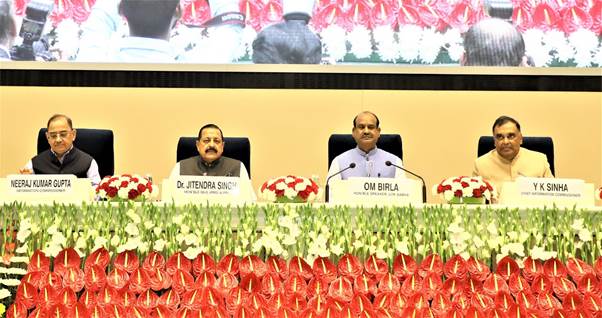Lok Sabha Speaker, Om Birla said that the main aim of the Right to Information Act is to empower citizens, bringing transparency, getting system rid of corruption and taking the democracy to the hands of the people of the country in true sense.
Speaking at the 15th Annual Convention of Central Information Commission titled, “Azadi Ka Amrit Mahotsav: Citizen – centric Governance through RTI” at Vigyan Bhawan, Om Birla said that effective use of the RTI will help in building a developed and corruption-free India, as envisioned by the Prime Minister Shri Narendra Modi.
Union Minister of State for Personnel, Public Grievances and Pensions, Dr Jitendra Singh said, transparency and Citizen-centricity are the hallmark of the Modi governance model. The Minister noted that empowered citizens are an important pillar of democracy and the Central Information Commission will continue to work for empowering the people through information.
Dr Jitendra Singh said, RTI Act is not a standalone law, but it is part of the larger narrative of strengthening Indian democracy, ensuring transparency in governance and building capacities of the common citizen to enable him to take informed decisions and choices. Above all, it is about nurturing the trust between citizen and the state – where both must have faith in each other, the Minister added.
Dr Jitendra Singh noted that it was during the Modi government that a 24-hour portal service was introduced for e-filing of the RTI applications during any part of the day or night and from any part of the country or abroad.
He added that technology has been harnessed for developing mobile based applications, e-filing, e-hearing, e-notification etc., facilitating the task of information seekers in availing remedies under the law. The mobile app developed by CIC enabled citizens to file appeals with ease, besides using technology for audio video hearing of cases. The Minister said, as a result, the Central Information Commission has succeeded in reducing the pendency from 38116 cases in the year 2020-21 to 23405 cases in the year 2021-22.



